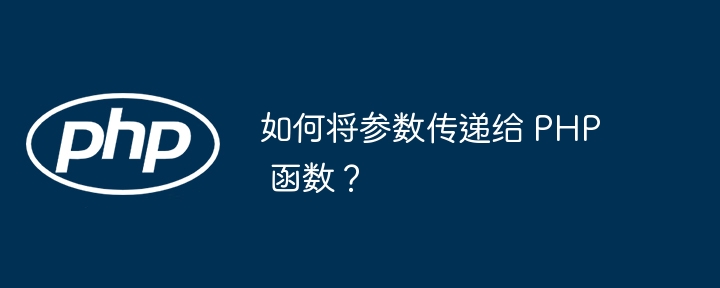Home >Backend Development >PHP Tutorial >How to pass parameters to PHP function?
How to pass parameters to PHP function?
- 王林Original
- 2024-04-10 18:42:02932browse
Parameters can be passed to PHP functions by specifying values when calling the function. The specific steps are as follows: Declare a function that accepts parameters. Specify parameter values when the function is called. Parameter types can be primitive types, arrays, objects, or resources.

#How to pass parameters to PHP function?
PHP functions can receive values and perform specific operations by passing parameters. Here's how to pass parameters to a function in PHP:
Function Declaration
First, you need to declare a function that accepts parameters. The syntax is as follows:
function function_name($parameter1, $parameter2, ...) {
// 函数主体
}Passing parameters
To pass parameters to a function, simply specify the value when the function is called:
function_name(value1, value2, ...);
Parameters Type
Parameters to PHP functions can be any type of data, including basic types (integers, floats, booleans, strings), arrays, objects, and resources.
Practical case: Calculate the sum of two numbers
The following example shows how to use parameters to pass two numbers to a PHP function and calculate their sum:
function sum($num1, $num2) {
return $num1 + $num2;
}
$result = sum(10, 20);
echo $result; // 输出:30Additional Tips
- The parameters are optional and you can specify default values.
- Parameters can be passed by reference (passing an address by reference) or by value (passing a copy).
- You can check the passed parameter values by using the var_dump() or print_r() function.
In summary, by passing parameters, you can use PHP functions to process external data and perform various operations.
The above is the detailed content of How to pass parameters to PHP function?. For more information, please follow other related articles on the PHP Chinese website!

